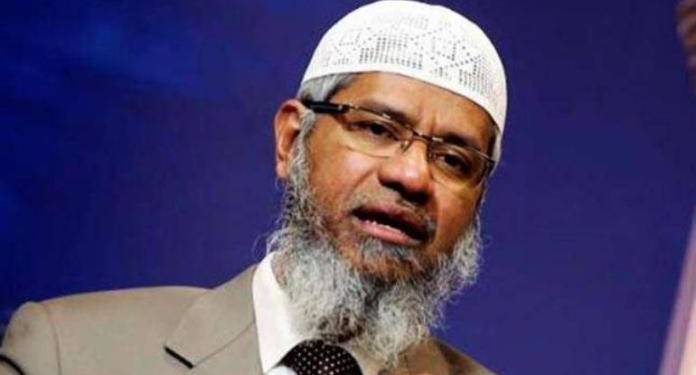Radical Islamic preacher and founder of the Islamic Research Foundation, Zakir Naik had fled India like a rat in 2016 for Malaysia, fearing action by law enforcing agencies for his explicitly hateful speeches towards non-Muslims. Further, much of the radicalization of Muslims taking place in South East Asia is often credited to Naik, with the closet jihadi playing a crucial role in triggering the Easter Sri Lanka blasts last year, which killed more than 290 people.
Malaysia, particularly under the previous Mahathir regime, had been trying to covertly extend protection to Zakir Naik by finding flimsy grounds of not extraditing the Islamist to India. However, the Indian government is now determined to have the man back.
The Modi government has now sent a formal request for extradition of Zakir Naik to Malaysia, and is said to be actively pursuing the matter, sources told ANI.
Naik is wanted in India for various criminal charges, including those of spreading communal disharmony and the UAPA (Unlawful Activities Prevention Act). Last year, the Enforcement Directorate also filed a chargesheet against Zakir Naik for money laundering.
Naik had fled India after his name surfaced in the Dhaka terror attack on the Holey Artisan Bakery, the perpetrators of which were said to have been inspired by the ‘preachings’ of Zakir Naik. The aggressive proponent of proselytization had also influenced the mastermind of the Easter Sri Lanka bombings.
The formal request to Malaysia by India, of extraditing the wanted criminal can be perceived as a final warning to the Palm oil exporter, which, under its previous regime was actively shielding Zakir Naik and causing an upsurge of radicalization in South East Asian countries, including Indonesia.
In recent times, Zakir Naik has been working his loose tongue to a large extent, spilling unchecked hatred against Indians, Hindus and non-Muslims in general. Only this month, the fundamentalist was heard saying that all oil exporting Islamic nations should form an anti-India bloc of sorts, and perhaps cause a cessation of exporting the same to India. “Most oils to India go from Muslim countries. Crude oil goes from Saudi Arabia, UAE and Nigeria. Natural gas comes from Qatar. Palm oil comes from Malaysia and Indonesia. Let them form a block and work collectively so that if they say anything against Islam or Muslims, we can be a beta force,” Naik said on his Youtube channel.
Last month, Zakir Naik suggested all Islamic nations to begin working on a database of Indians (read non-Muslims) who said anything against Muslims or Islam. He then said that such data should be used when Indians travel to these Islamic countries, and that they should immediately be arrested there.
The extradition request by India comes in the backdrop of such vitriol being spread by Naik against Indians, while sitting in Malaysia. It must be remembered that Malaysia is a single-sector dependent economy, which relies to a great extent on its ability to export Palm oil to the world. With the global shutdown in these times of COVID-19, Malaysia’s economy is set to go for a nosedive. It is also pertinent to note that India, a major market for Malaysia to export Palm oil, had nearly stopped importing the same early this year.
The decision to boycott Malaysian Palm oil came at the backdrop of the previous Malaysian PM Mahathir’s consistent anti-India propaganda, particularly his rant against India at the United Nations.
However, the current Prime Minister, Muhyiddin Yassin has been trying to fix the bilateral relations between Malaysia and India ever since he stepped foot in office. It has also been consistently trying to renegotiate its relations with the Indian government in order to mend ties between the two countries. Sugar imports of Malaysia from India reached a record high only recently, indicating the new Prime Minister’s willingness to closely work with the Indian dispensation.
India seems to be leveraging the same to its advantage, by now shooting off an extradition request to Malaysia to ship Zakir Naik back to India. It seems that the Modi government has made it clear that the extradition of Zakir Naik is a prerequisite to fixing relations between the two countries, and Malaysia is likely to cooperate under its new Prime Minister for the same.
























